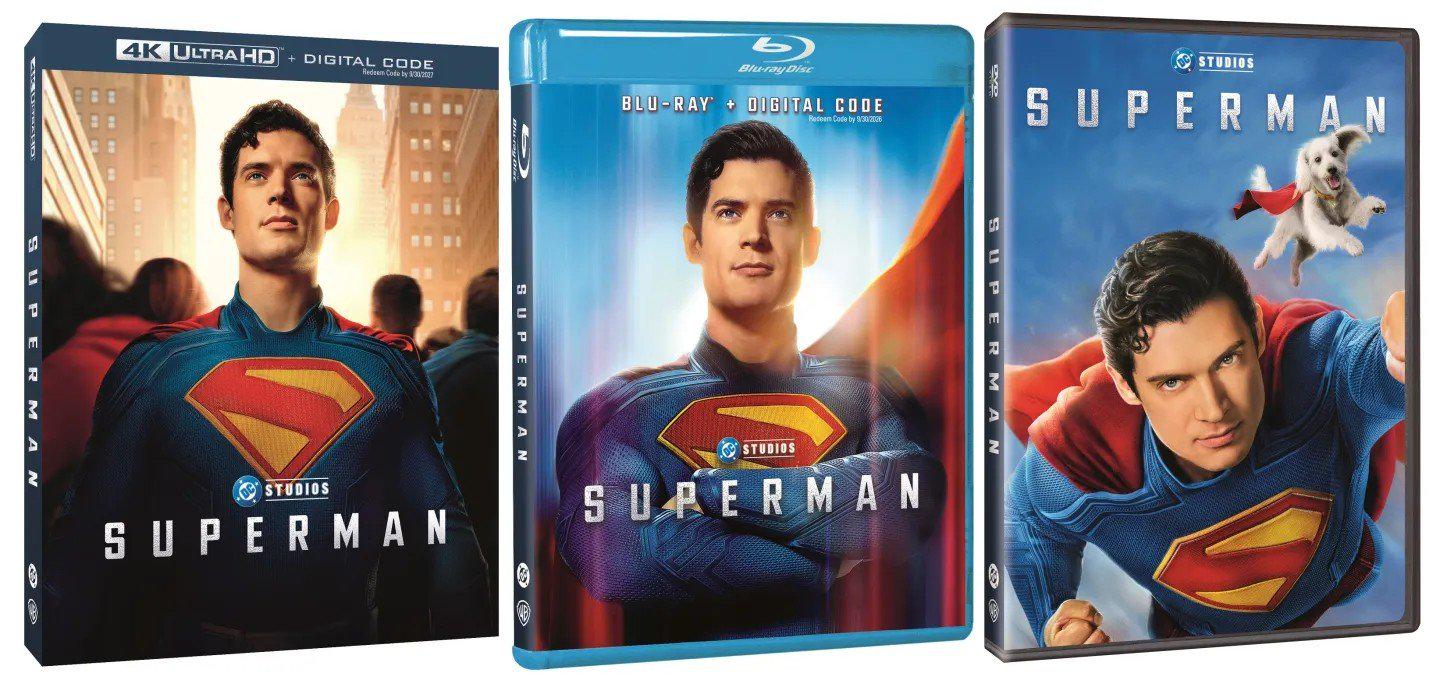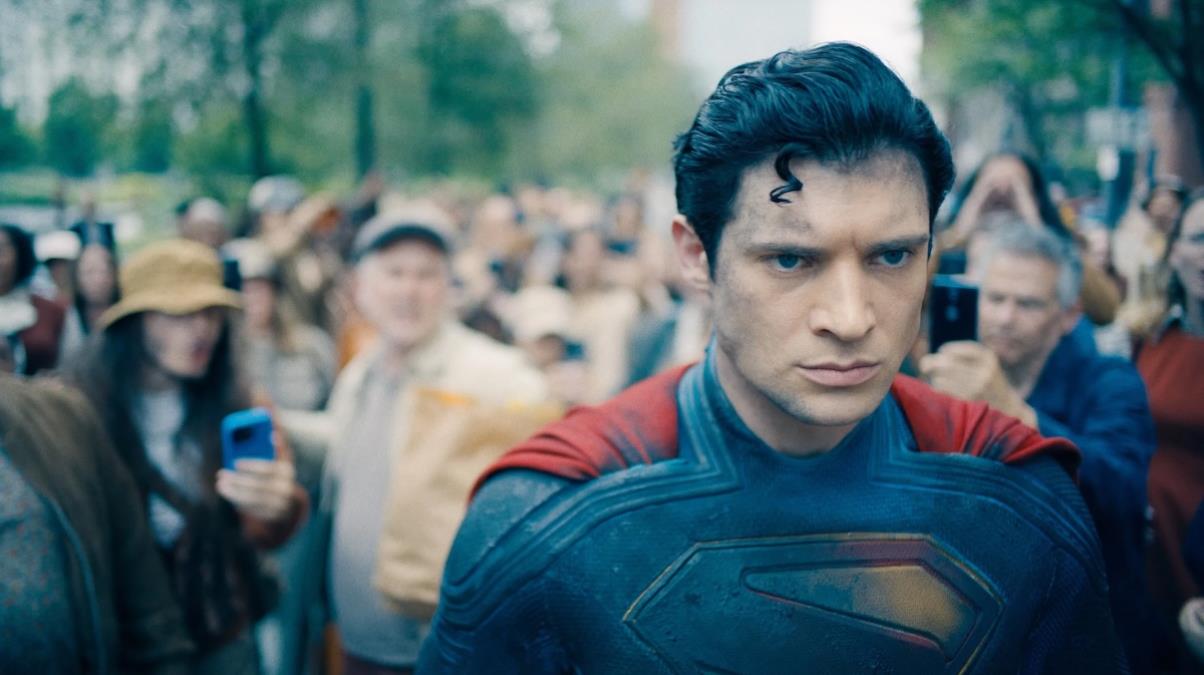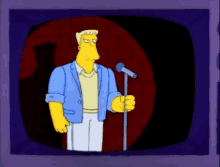This is a translation of my review which was in French (because I'm way too lazy to rewrite everything) so sorry if some of the wording is imperfect.
James Gunn, known for his Guardians of the Galaxy films and their irreverent tone, attempted to reinvent Superman for the DCU. The result? A film that's Superman in name only. A chaotic mosaic of Gunn's personal delusions, a poorly stitched film that betrays the essence of the character while getting bogged down in lazy writing, mediocre direction, and aberrant narrative choices.
This Superman isn't an ode to the Man of Steel, but a playground for Gunn's eccentricities. The film seems to want to tick all the boxes of his filmography: slapstick humor, garish colors, absurd supporting characters, and an obsession with pop culture references that stifle the mythos. Rather than building a coherent story around Kal-El, Gunn imposes his usual narrative tics, transforming Superman into an avatar of Star-Lord in a blue and red suit. The scenes flow like a jumbled playlist: a battle against a soulless CGI monster, a clumsy joke about Krypto, a botched romantic subplot. It feels like a mash-up of Guardians and The Suicide Squad, without the slightest attempt to capture what makes Superman unique: his transcendent humanity and his role as a symbol of hope. Well, yes! Superman himself makes it all clear at the end with a speech of appalling impoverishment.
The writing, by the way, is a disaster. A patchwork of clichés and simplistic tactics that disregards the viewer's intelligence. The script (written by Gunn alone) is a narrative disaster. The supporting characters (Hawkman, Green Lantern, etc.) are introduced without context, like disposable cameos to pad out a DC universe that already seems overcrowded. The film tries to do everything without ever delving into anything. The dialogue oscillates between banal and downright awkward, sounding like it's straight out of a Saturday morning cartoon. And not the good kind, I might add. When compared to works like All-Star Superman, where every challenge is solved by Clark's intelligence and determination, it becomes aberrantly dull and lazy. Superman himself, supposed to be eloquent and inspiring, is reduced to generic tirades about hope interrupted by awkward jokes.
The Kents, Superman's emotional pillars in the comics, are reduced to pathetic caricatures. Jonathan and Martha are portrayed as simplistic farmers, almost comical in their naiveté. Their roles are limited to platitudes like "Be nice, Clark" or scenes where they seem overwhelmed by the slightest situation. Where is the Kents' down-to-earth wisdom that anchors Clark in his humanity? Gunn transforms them into stereotypical betas incapable of offering Clark a credible moral compass. This choice betrays the essence of the Kents, who in All-Star Superman and Superman: For All Seasons are loving authority figures, guiding Clark with strength and dignity.
Turning Jor-El and Lara into Kryptonian supremacists is a mind-bogglingly stupid idea. In the comics, Clark's biological parents are visionary scientists who sent their son to Earth to preserve Krypton's legacy and provide humanity with a protector. Here, Gunn portrays them as elitists convinced of the superiority of their race, manipulating Clark via moralizing holograms in the Fortress of Solitude. This rewrite is not only insulting to the lore, but it undermines Superman's fundamental duality: a man torn between two worlds but guided by the universal love of his two families. Making them supremacists gives the impression that Clark must reject his Kryptonian heritage, which contradicts everything the character stands for. It's a betrayal of the myth that deprives Superman of his innate nobility.
And yet, in form, the film seems to pay homage to the comics. But this fidelity is purely cosmetic because, deep down, Gunn doesn't understand Superman at all. The character isn't just a powerful hero; he's a symbol of absolute hope, an outsider who chooses humanity despite its imperfections (hello Superman - Peace on Earth). Gunn renders him banal, hesitant, almost parodic. Where All-Star Superman celebrates Kal-El's greatness through selfless acts, this film drowns him in clumsy cynicism, transforming him into just another generic superhero. Gunn's Superman doesn't inspire; he entertains like a filler episode of a Netflix series.
And everything about this film feels rushed, as if Gunn wanted to condense an entire DCU arc into 130 minutes. Action scenes flow without pause, introspective moments are dispatched in a few lines of dialogue, and relationships (especially Clark/Lois) lack development. This frenetic pace prevents the viewer from becoming attached to the characters or feeling any sense of stakes. Compared to Man of Steel, which took the time to build Clark's quest for identity, this Superman movie feels like a TikTok video: flashy, loud, but terribly empty...
The tone of the film itself is a disaster, oscillating between slapstick comedy and poorly executed drama. The stakes are sometimes very serious, but everything is immediately undermined by a crappy joke (hee hee, Justice Gang, working name, we're really laughing our heads off, James). Lex Luthor, supposed to be a Machiavellian genius, alternates between Shakespearean monologues and childish tantrums. This mix creates cognitive dissonance because the film aims to be light and profound, but fails on both counts, leaving us completely perplexed by what the film is trying to convey.
Lex, by the way. His plan, if you can call it that, is the height of absurdity. Nicholas Hoult is stuck in a caricatured role where Luthor orchestrates a convoluted plot involving apes that "rage-tweet" from a parallel dimension (seriously?). This plan, supposed to discredit Superman, rests on gaping inconsistencies: why does a genius like Luthor rely on such unstable technology? And above all, how is he foiled by an ex-girlfriend who, by pure coincidence, has compromising selfies taken in his secret lab? This resolution is insultingly lazy, worthy of a cheap soap opera. Luthor is a calculating manipulator, not a buffoon trapped by a rom-com cliché.
Gunn's direction is disconcertingly flat. The action scenes, while generous, are drowned in a deluge of CGI. The fights recall the worst excesses of Whedon's Justice League, with unnecessary explosions and clumsy slow motion. Gunn's B-movie-inspired art direction veers into unintentional kitsch with saturated colors that assault the eyes, cardboard sets, and a Fortress of Solitude that resembles an IKEA showroom. Even the music, crucial for a Superman movie, is generic, with no memorable theme aside from Mr. Elfman's. But here too, he couldn't resist butchering it on electric guitar. Gunn seems unable to transcend his television style, delivering a film that lacks the cinematic breadth the Man of Steel deserves.
In addition to the points mentioned, the film fails to give Superman a unique aura. In Kingdom Come or Whatever Happened to the Man of Tomorrow, Superman is a near-godlike figure, a moral beacon in a chaotic world. Here, he's relegated to the status of an unremarkable metahuman, surrounded by useless supporting characters who steal the show. The DCU universe, which this film is supposed to relaunch, already seems overloaded with references to other heroes carelessly thrown in like a crossover draft. The treatment of Krypto (even though, in my opinion, he has no place in a Superman movie, or at least not as an introduction) is over the top. How many times do we have to see Superman saved by his pet?
One of the most aberrant aspects of James Gunn's Superman is the treatment of Clark's temper tantrums, particularly his explosive reaction to the #Supershit hashtag that goes viral in the film. These outbursts of rage are not only narratively clumsy, but they fundamentally betray the moral values and emotional control that define the Man of Steel in the comics and faithful interpretations of the character. Superman, as established as early as Action Comics #1 (from 1938, I remind you) and then further developed in stories like Kingdom Come, embodies unwavering moral values: justice, compassion, and absolute self-control. His physical strength is matched only by his mental fortitude, allowing him to overcome provocations without ever losing his dignity. In Gunn's film, Clark's outbursts in the face of #Supershit make him appear petty and immature, as if he's incapable of handling public criticism. Compared to Superman: Up, Up and Away, where his self-doubt is tied to the temporary loss of his powers, which is a tangible issue, this hashtag is ridiculous.
In Superman: Birthright, for example, Jonathan and Martha Kent teach him from a young age to control his powers and emotions, knowing that his strength could cause catastrophes if he lost control. In other comics (I have this one in mind), Jor-El instills in him an ethic of responsibility and restraint via the recordings of the Fortress of Solitude. But in Gunn's film, Clark seems to have forgotten these fundamental lessons. This version of Superman acts like an angry teenager. These tantrums are all the more aberrant because they do not fit into Clark's narrative arc. The film tries to present Superman as a hero in search of legitimacy, but his outbursts of rage occur without a credible emotional buildup. For example, the hashtag scene comes after a mission where Superman saves hundreds of lives, which makes his frustration disproportionate and unjustified. This inconsistency is compounded by the fact that Clark, as a reporter for the Daily Planet, should be used to media criticism. In Superman: The Man of Steel (not the movie, mind you), Clark uses his role as a reporter to understand human perceptions and respond intelligently, not with childish tantrums. Rather than using #Supershit as an opportunity to showcase Superman's resilience, Gunn takes the easy way out by having him break down like a child whose pacifier has been taken away.
The script, for its part, suffers from a frenetic pace that prevents any emotional depth. Key scenes, such as Clark's doubts or his reconciliation with Lois, are dispatched in a few lines, while endless CGI fights take up a disproportionate amount of time. This haste contrasts with the patient structure of Superman: Peace on Earth, for example, where every moment (from inner reflection to heroic acts) is carefully developed. Gunn's film seems to want to fill an action quota at the expense of substance, making moments that were supposed to be poignant (like a confrontation between Clark and Lex) bland and forgettable, in addition to ruining most of them with cheap humor.
And then there's the infamous question of torture, a heated debate. Well, sorry, but I stick to my guns. Everything is explicitly stated in the film, and Clark himself specifies that he warned the President that he would return if he didn't comply. So we have a Superman who kidnaps a human, makes him suffer to make him bend to his will, and we have to pretend everything is fine and normal. Sorry, but it's not.
I'll skip over a lot of aspects like Lois admitting she doesn't believe in their relationship, the innuendos that Clark is just a bad journalist, and the useless characters who only serve as plot devices because I'm just disgusted. As a DC fan, and particularly a Superman fan, I wanted a good movie, and what I got was a subpar soap opera. This second viewing was even more disappointing than the first.
James Gunn's Superman is a disaster, a film that buries the myth under a pile of failed jokes, sloppy writing, and aberrant narrative choices. By transforming the Kents into idiots, Jor-El and Lara into supremacists, and Lex Luthor into a caricature, Gunn proves he doesn't understand what makes fans of the Man of Steel tick. Despite its apparent fidelity to the comics, the film betrays Superman's soul by reducing him to a generic hero in a blockbuster without heart or ambition.
Viewers deserve better. Superman deserves better. 2.5/10



 comicbookmovie.com
comicbookmovie.com






